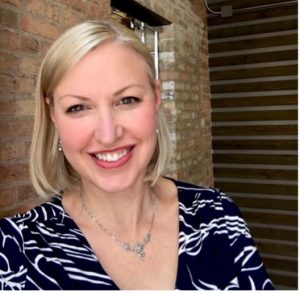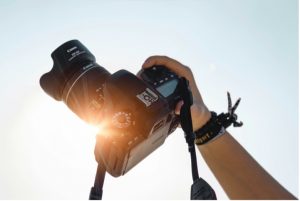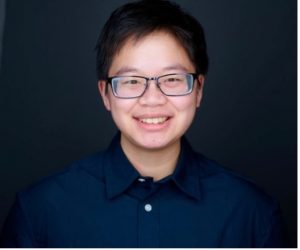Arts advocate. Pro bono leader. Entertainment lawyer.
Professor Marci Walker has accomplished so much in her journey serving and advocating for those in the creative fields. In conversation with her, I could immediately tell how passionate she was about her work. Ever since she was young, she has been fostering her love of the arts. Now, she has made a career out of teaching and helping others pursue their passions.

She is an adjunct faculty member at Loyola University Chicago School of Law teaching Copyright Law. This area of law protects original works of authorship (e.g., musical works, literary works, motion pictures, choreographic works, and musical works). Prior to working at Loyola, she spent almost two decades working at Lawyers for the Creative Arts, a nonprofit organization that creates access to legal services for people in all areas of the arts.
It was an absolute delight speaking with her—here is a glimpse into her story.
The following is an edited version of our conversation.
I read that you had an arts background. Could you talk more about that?
I have some arts background but am more of an arts patron. I can’t get enough of it and even my children shoo me out of art festivals before I get wrapped up in conversation with the artists. I can paint and draw but my only natural talent is writing. I started with poetry and short stories and wrote about a hundred-page book when I was 12. It was a coming-of-age story about going against peer pressure.
My dad gave me my first camera when I was young, maybe seven or eight, and I was forever hooked. He was an engineer who just happened to be an excellent photographer, and he let me learn with his 1960s Canon in high school. It was one of the old-style SLR cameras with zero automatic features. I took a darkroom printing class, and it was a great new way for me to put meaning on paper.

Did law school help further your interest in the arts?
Honestly, I had a lot of interests when I started law school. I chose Loyola for its health law program but drastically shifted gears. I’d take reading breaks, camera in hand, and Dean Jean (Jean Gaspardo, Ret.) noticed and ushered me into the school’s media department to photograph for the law school. I took pictures at school events and was always the kid running around with a camera or two strapped on my back.
During the summers I externed for a federal judge and the City of Chicago. I advised clients under Professor Theresa Ceko, in Loyola’s Community Law Center, and researched for Professor Jamie Carey, who ran Loyola’s trial advocacy program for many years before retirement. As a result of these experiences, my academic focus shifted heavily to policy and the public interest.
Jodi Greenspan, then Director of Career Services, knew that I wanted a different type of career than working for a law firm and gave me a book about alternative legal careers. She recommended working for Lawyers for the Arts. It was the first time I’d ever heard of entertainment law work in Chicago, let alone volunteer lawyers for the arts.
Did you practice law right after graduating from law school?
I did not go straight into practice after law school. I did more photography and picked up some behind-the-scenes work. Nothing big, just independent films, but it was fascinating to me. I worked with producers, and after a while, they had legal issues. Things would come up, and they would stop and say, “Wait you’re a lawyer!” So that was how it began.
When was your first exposure to intellectual property law?
For starters, intellectual property law protects creations of the mind, which includes copyrights, trademarks (marks identifying commercial goods and services), and patents (exclusive rights granted for innovations).
I learned about copyright as a photographer. A band copied images I shot from their concert, and we all learned from it. It was easier to avoid infringement (unlawful copying of intellectual property) back then because I shot on film and you’d need the negatives to make any decent-quality print.
In general, when you do not have an attorney, you tend to make a lot of mistakes, as any type of creative artist, whether you’re in music, dance, or film. When I worked with producers, I started noticing problems with copyright clearance, which is the process of obtaining permission to use works owned by third parties that may be protected under intellectual property law.
Can you explain what entertainment law encompasses?
It is applying knowledge of the entertainment industry and using different legal skills. I might have more specialized knowledge in the music and film industry than the regular person which benefits the client. I can write a better deal because I understand the production process. That is why a lot of musicians-turned-lawyers make sense. There is a whole process of how a record is made, what you do on tour, and what you do with merchandising.
But entertainment law is really a misnomer. It is a mix of copyright and business law and describes a client type far more than an actual area of law. Other areas seep in like labor law if you’re dealing with unions or figuring out employment classification such as whether someone’s going to be an independent contractor or not. Trademark certainly comes up, especially in clearance. The field also includes corporate work to help set up a business or joint venture (a common business enterprise). In the film industry, you might have a great idea, but you do not have the money to get off the ground so there are different ways to finance it. There is work in securities (related to investments in financial assets) as well.
But more than anything entertainment law is contracts and copyright, which I love, so that was a good fit.
How did your arts background contribute to your work in the entertainment law field?
At first, there was uncertainty over being a new lawyer. I had to go to the library and contact other attorneys to learn the ropes. I joined bar associations and did a lot of CLE (Continuing Legal Education). My arts background established a foundation, but I really needed to learn everything from the ground up.
When there was a job opening at Lawyers for the Creative Arts, I applied and got the job. A friend of mine told me that not only was this position so cool, but “just so you.” I could not just do a job. I needed a job with purpose—and it turned into a career.
You mentioned working at the Lawyers for the Creative Arts. Why did you pursue pro bono work?
Pro bono work was a natural fit. Attorneys should help clients unable to pay legal fees, because they can, and they should. It’s about doing what is right. My work for LCA meant I could bridge the legal skills and resources needed to make a difference for people who would otherwise have no way to afford legal help.
First and foremost, my knowledge is people and my relationships with them. A client will come into my office and I have to find the right lawyer with the right expertise and have a relationship with people where I can say, “Here is someone who really can benefit from your specific knowledge,” and make that connection.
When you have the knowledge, you should pursue pro bono work. Granted, not every case is easy. But the point is, a person out there who doesn’t have legal skills or doesn’t have a lawyer in their family, they are just going be lost, especially if they have a legal claim or get some heavy-handed cease and desist, a letter threatening legal action if the party does not immediately stop using unauthorized content. It is a world of difference if you have access to an attorney who can even just read legal documents and tell you what they mean versus floundering and trying to do it on your own like the early filmmakers that I knew.
What do you find the most rewarding about pro bono work?
It is extremely fulfilling, not just because of projects that people are working on, but also because you are directly impacting someone’s life. For instance, artists would come in and apply for legal assistance from LCA. We would find a firm with good resources and a team to take on representation. The clients would then come back with hugs and presents and thank us for making it all possible.
Honestly, it was just amazing because you are helping a client get the legal assistance they need. On the other hand, you are also helping someone in a profession do something good.
For example, sometimes we recovered artwork or rescued a master recording. These were the high moments. But pro bono work is special in another way. There is less incentive to settle and some cases go to trial. We got actual case law on some uncertain areas of copyright law while I was there.
I am also ever grateful to and proud of the Chicago legal community. The Chicago Bar Foundation here is truly unique fostering a climate of giving. It is humbling to reflect on the thousands of hours of free legal work performed for others, the teams of lawyers and solo practitioners that give their time, and the creative work that results.
What were some common challenges you saw?
The biggest problem I have always encountered is with contracts. Everything I have done in my career, including teaching, is about preventative lawyering. I often choose to teach at the undergrad and the graduate level because then I am teaching potential clients how to avoid later litigation. Whenever I look at a legal dispute that has come up, I can always trace it back to a bad contract or something where they did not quite have a complete meeting of the minds, or things were left out that were essential.
Clients also consistently had projects with copyright clearance holes. They’d come in with a book, a movie, a record, or a play, thinking they were ready to move to the next step, but they’d collaborated or hired others to work on the project or used third-party content without contracts. We’d have to unscramble the mess of who owns what and get it transferred on paper for the project to be viable. These issues don’t stop with artists. Every client has to document IP assets and transfers.

I see that you currently teach Copyright Law at Loyola. What do you hope to impart to your students?
At the end of the day, I really want students to think about the client’s goals and what legal steps can be put in place for the long term. You have to ask clients what they really want. I am always bugging my students to go back and read the pleadings. The story matters and affects the case’s outcome. You can find motivations and cues in deposition testimony about why the dispute landed in court or areas of potential settlement. These documents and eventual judicial holdings are training grounds for how to avoid lawsuits in the future or work with parties to reach agreements.
This is what always brings me back to contracts. You really have to hone in on the deals because when people do not have representation, things go wrong in ways you can’t imagine. As students, you can also be part of educating the public that entering contracts isn’t a take it or leave it. There’s room to negotiate. You can also become part of the pro bono culture directing others to legal aid organizations or assisting practicing lawyers on pro bono matters.
So, for my students, I want them to be well-rounded people. I do not think that walking around with your arsenal of case law in your pocket is what’s gonna make you the best lawyer because we are all smart. We can all go back and research case law, but you have to be personal and compassionate enough that you really establish trust with your client.
What advice would you give to students interested in the intellectual property and entertainment field?
There are a couple of things you can do. One, is to be knowledgeable about current events, which you can do by joining different bar groups. In the Chicago Bar Association (CBA), there are at least four different CBA and Young Lawyer Section (YLS) committees in this related field: the Intellectual Property Law Committee, the Media & Entertainment Law Committee, the YLS Intellectual Property Law Committee, and the YLS Creative Arts Committee. In the Illinois State Bar Association (ISBA), there’s the Intellectual Property Section, and through the American Bar Association (ABA), there’s the Forum on the Entertainment & Sports Industries, the Section of Intellectual Property Law, and Liaison positions for students.
In addition, I recommend finding a question that you can ask a practicing attorney. It might be someone that you hope to work for, or it might be someone who can help connect you to other job openings, because if someone winged me a question, it might start a relationship. I place high value on informational interviews, conversations to provide insight about a person’s career path, industry, and/or general career advice. People will remember you if you reach out and what I always tell students is to find someone you want to talk to, read an article they wrote, or go to one of their presentations and ask them a question. It is a gift to me because I can just respond and engage in dialogue, as opposed to telling them that we are not hiring right now.

Ashton Yeh (they/them)
Associate Blogger
Loyola University Chicago School of Law, J.D. 2025
